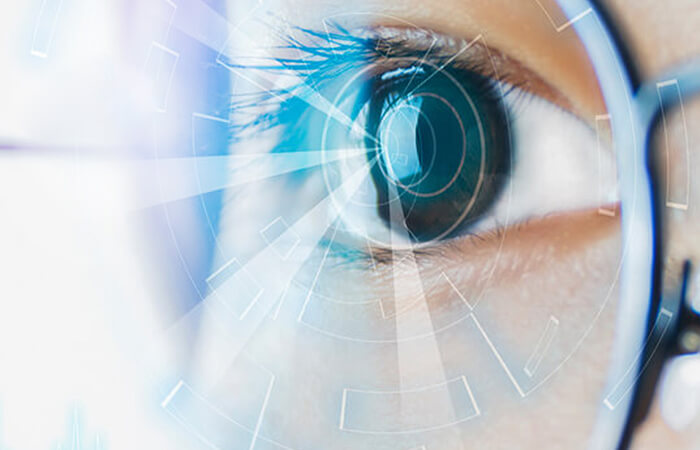Andalusia Eye Doctors: Expert Ophthalmologists in Your Area
The Complete Break Down of Retina Disorders and How They Impact Your Vision
Retina disorders can interrupt this delicate procedure, leading to a variety of vision impairments. By discovering the anatomy of the retina, typical disorders that can influence it, their causes, symptoms, and available therapy alternatives, we can get valuable insights into protecting and safeguarding our vision.
Summary of Retina Composition
The complex framework of the retina offers as the foundation for aesthetic understanding and plays a vital function in the process of converting light right into neural signals for the brain to interpret. Located at the back of the eye, the retina consists of several layers that function together perfectly to facilitate vision. Recognizing the detailed makeup of the retina is basic in comprehending exactly how vision features and just how various retina problems can affect visual perception.

Usual Retina Disorders
Retina problems encompass a range of conditions that affect the complex framework of the eye in charge of aesthetic processing. One usual condition is age-related macular degeneration (AMD), a leading reason for vision loss in individuals over 50. AMD influences the macula, a component of the retina essential for sharp central vision, resulting in blurriness or blind spots in the central aesthetic area.
Another widespread condition is diabetic retinopathy, occurring in people with diabetes. High blood sugar levels harm the capillary in the retina, bring about vision disability or loss of sight if left neglected. Retinal detachment is a major disorder where the retina retreats from its regular placement, creating an abrupt beginning of advances, flashes of light, or loss of vision in a curtain-like pattern.
Finally, retinitis pigmentosa is a group of genetic disorders that trigger the malfunction and loss of cells in the retina, leading to night loss of sight and a steady narrowing of the visual field - cardiologist andalusia. Recognizing these usual retina conditions is vital in protecting vision and seeking prompt clinical treatment
Root Causes Of Retina Disorders
Various elements add to the development of retina conditions, including genetic predispositions, way of living options, and underlying health problems. Hereditary predispositions play a substantial role in several retina disorders, such as retinitis pigmentosa and macular degeneration. People with a family background of these conditions go to a higher danger of creating them because of acquired genetic anomalies affecting the retina's feature.
Lifestyle options can also affect retina wellness. Cigarette smoking, for instance, has been connected to an increased danger of age-related macular deterioration, a common retina problem that can lead to vision loss. Poor click here for more info nutritional behaviors lacking necessary nutrients like vitamins A, C, and E, as well as omega-3 fatty acids, can additionally add to the advancement of retina conditions.
Hidden health conditions, such as diabetes mellitus and hypertension, are known to impact the retina. Diabetic retinopathy, a difficulty of diabetes, can create damages to the capillary in the retina, leading to vision impairment. Likewise, high blood pressure can cause hypertensive retinopathy, where high blood pressure affects the blood vessels in the retina, potentially triggering vision troubles. Comprehending these causes is critical in avoiding and handling retina conditions.
Signs and Medical Diagnosis
Given the significant impact that causes such as genetic tendencies, lifestyle choices, and underlying health problems can carry the advancement of retina problems, it is important to recognize the signs and symptoms and utilize reliable analysis techniques for early discovery and monitoring. Signs and symptoms of retina problems can differ depending on the certain condition yet may consist of blurred or misshaped vision, the unexpected appearance of floaters or flashes of light, a dark spot in the center of your vision, or a progressive loss of central vision. If you experience any of these symptoms, it is essential to look for instant clinical focus.
Early discovery via routine eye exams is crucial to preventing vision loss and managing retina conditions properly. If this contact form detected with a retina disorder, your healthcare service provider will certainly function with you to establish a personalized therapy plan to protect your vision.

Treatment Alternatives and Management
Therapy choices for retina problems differ depending on the underlying reason and severity of the condition. In cases of retinal detachment, medical interventions such as vitrectomy or scleral buckling might be required to reattach the retina and stop vision loss.
Routine eye tests and very early discovery of retina conditions are important for effective management and therapy results. Individuals with retina conditions ought to function closely with their eye doctor to create a tailored therapy plan that addresses their certain demands and helps maintain optimum aesthetic feature.
Final Thought
In conclusion, understanding the makeup of the retina, common disorders, triggers, signs and symptoms, medical diagnosis, and treatment alternatives is important in handling vision problems. Retina conditions can significantly influence vision and quality of life, making very early discovery and correct management vital. By staying notified concerning these conditions and looking for suitable medical treatment, people can much better preserve their vision and preserve general eye health and wellness.

Comprehending the complex makeup of the retina is basic in comprehending how vision functions and exactly how different retina problems can influence aesthetic perception.
Retinal detachment is a serious condition where the retina pulls away from its typical placement, triggering an abrupt start of floaters, flashes of light, or loss of vision in a curtain-like pattern.
Signs of retina problems can differ depending on the particular problem yet might consist of obscured or misshaped vision, the abrupt look of drifters or flashes of light, a dark area in the center of your vision, or a steady loss of central vision.In verdict, understanding the composition of the resource retina, typical conditions, creates, symptoms, medical diagnosis, and treatment options is crucial in managing vision impairments.